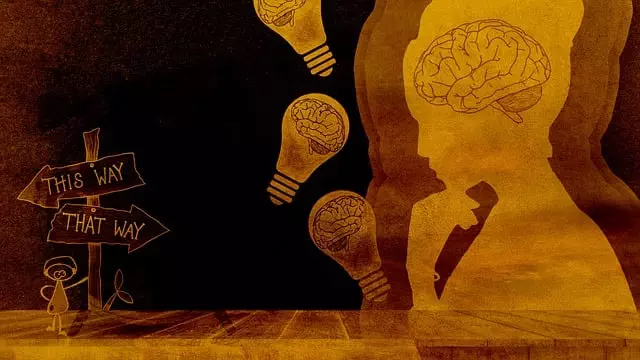Kaiser Permanente Mental Health Longmont prioritizes Emotional Intelligence (EI) as a powerful tool for improving well-being and managing mental health challenges. By developing self-awareness, self-management, social awareness, and relationship skills, individuals gain better emotional control, enhance decision-making, and build stronger connections. Kaiser's integrated programs offer practical tools like active listening, journaling, mindfulness exercises, and gratitude practices to foster open dialogue about emotions, reduce stigma, and promote mental wellness in both personal and professional settings, benefiting both individuals and communities.
Emotional intelligence (EI) is a powerful tool for enhancing well-being, and Kaiser Permanente Mental Health Longmont is at the forefront of promoting this concept. This article explores EI as a key component of holistic health, delving into its understanding, components, and impact on personal growth. We provide actionable strategies for improving EI in daily life, drawing insights from professionals at Kaiser Permanente Mental Health Longmont. Discover how cultivating emotional intelligence can transform your mental health journey.
- Understanding Emotional Intelligence: A Key to Well-Being at Kaiser Permanente Mental Health Longmont
- The Components of Emotional Intelligence and Their Impact on Personal Growth
- Strategies for Enhancing Emotional Intelligence in Daily Life
- Incorporating Emotional Intelligence into Your Routine: Tips from Kaiser Permanente Mental Health Professionals
Understanding Emotional Intelligence: A Key to Well-Being at Kaiser Permanente Mental Health Longmont

At Kaiser Permanente Mental Health Longmont, understanding emotional intelligence is recognized as a cornerstone for promoting well-being and addressing mental illness. Emotional intelligence (EI) involves recognizing, managing, and understanding one’s own emotions, as well as empathizing with and responding appropriately to the emotions of others. This skill set is vital not only for personal growth but also for effective communication and conflict resolution techniques within the community.
By integrating EI into their mental health services, Kaiser Permanente Mental Health Longmont aims to foster a supportive environment that encourages open dialogue about emotional experiences. This approach helps in reducing the stigma associated with mental illness and promotes mental wellness by equipping individuals with tools to navigate complex interpersonal relationships. Through various programs and initiatives, they guide patients towards improving self-awareness, developing better coping strategies, and enhancing their ability to connect and resolve conflicts, ultimately contributing to a more balanced and fulfilling life.
The Components of Emotional Intelligence and Their Impact on Personal Growth

Emotional intelligence (EI) comprises four key components: self-awareness, self-management, social awareness, and relationship management. These components play a pivotal role in personal growth and development, especially in the context of mental health, as highlighted by Kaiser Permanente mental health Longmont.
Self-awareness involves recognizing and understanding one’s emotions, strengths, weaknesses, and values, which forms the foundation for self-management—the ability to control and direct one’s emotions effectively. High levels of self-awareness and self-management lead to better decision-making and resilience. Social awareness, on the other hand, entails recognizing and empathizing with others’ feelings, fostering strong interpersonal connections. Relationship management completes the cycle by enabling individuals to build and maintain healthy relationships, a crucial aspect for overall well-being and professional success, as underscored in Risk Assessment for Mental Health Professionals. Moreover, integrating Self-Care Routine Development for Better Mental Health practices can significantly enhance EI, leading to better risk management planning for mental health professionals, thereby ensuring both personal growth and professional effectiveness.
Strategies for Enhancing Emotional Intelligence in Daily Life

Building emotional intelligence (EI) is a continuous journey that can greatly enhance our daily interactions and overall well-being. At Kaiser Permanente mental health Longmont, we emphasize the importance of EI as a key component to optimal mental health. Strategies for enhancing EI include practicing active listening, which involves fully concentrating on what others are saying without judgment, allowing for a deeper understanding of their feelings and perspectives. This simple act can foster stronger connections and improve communication in both personal and professional settings.
Additionally, regular self-reflection through journaling or meditation can help individuals develop emotional regulation skills. By taking time to identify and understand one’s emotions, we can learn to respond rather than react impulsively. The Community Outreach Program Implementation at Kaiser Permanente Longmont encourages participants to engage in these practices, alongside the Mental Wellness Podcast Series Production, which offers valuable insights and techniques for managing stress and cultivating positive mental health habits.
Incorporating Emotional Intelligence into Your Routine: Tips from Kaiser Permanente Mental Health Professionals

Embracing emotional intelligence (EI) is a transformative journey that can significantly enhance your overall well-being, and Kaiser Permanente mental health professionals in Longmont are here to guide you every step of the way. They emphasize that integrating EI into daily life isn’t as daunting as it may seem; instead, it’s about making small, consistent changes. One practical tip is to allocate dedicated time for self-reflection and awareness. This can involve keeping a journal or simply taking moments throughout the day to check in with your emotions—a practice known as mindfulness. By fostering this habit, you begin to develop a deeper understanding of your feelings, enabling better management and expression.
Additionally, Kaiser Permanente’s mental health experts encourage engaging in activities that promote positive thinking and emotional growth. This could be as simple as practicing gratitude by noting down three things you’re thankful for each day or participating in public awareness campaigns that emphasize the importance of mental wellness development. Such initiatives not only contribute to personal growth but also play a vital role in creating a supportive community, fostering open conversations about mental health, and ultimately improving overall emotional intelligence on a societal level.
Emotional intelligence, as highlighted by Kaiser Permanente mental health professionals at Longmont, is a powerful tool for personal growth and well-being. By understanding its components and implementing practical strategies, individuals can enhance their ability to manage emotions, foster meaningful connections, and navigate life’s challenges more effectively. Incorporating emotional intelligence into daily routines offers a transformative path towards self-improvement and better relationships, all accessible through the expertise provided at Kaiser Permanente Mental Health Longmont.






